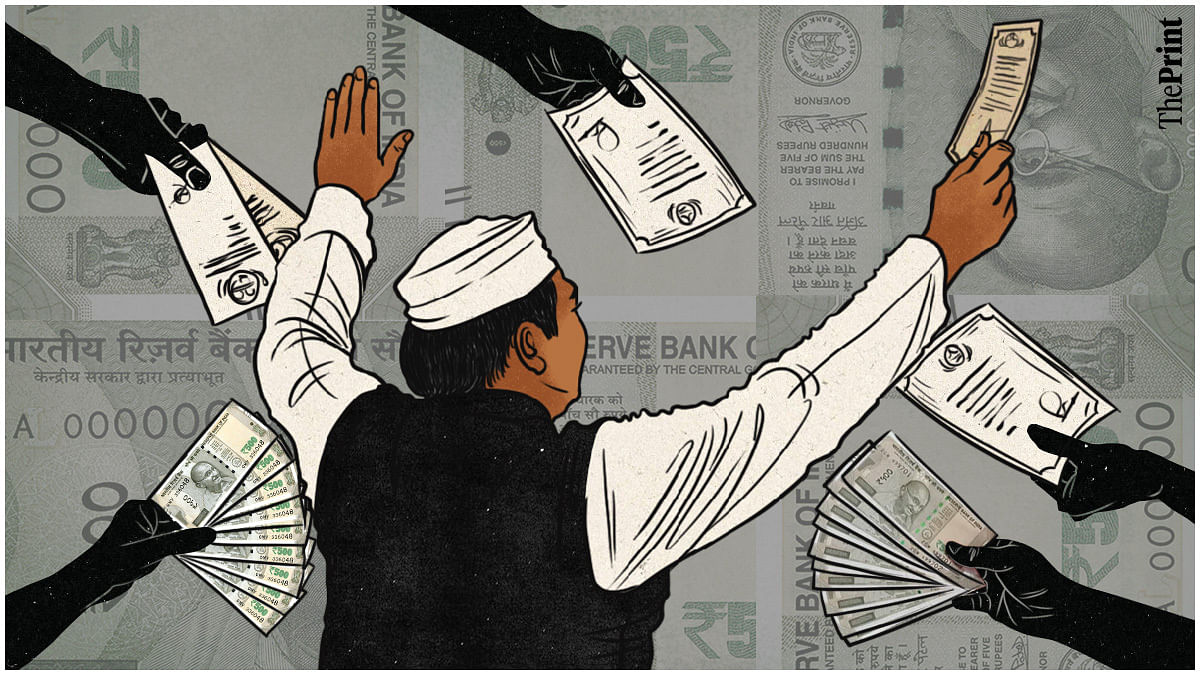New Delhi: The Supreme Court Thursday held the controversial Electoral Bond scheme as unconstitutional and ordered the issuing bank to immediately stop its issuance.
A bench of Chief Justice of India D.Y. Chandrachud and Justices Sanjiv Khanna, B.R. Gavai, J.B. Pardiwala and Manoj Misra rendered the verdict on a batch of petitions that questioned the legal sanctity of the electoral bond scheme for political funding.
The verdict comes ahead of the Lok Sabha elections, expected to take place in the coming months of April and May.
Notified in 2018, the scheme allows anyone, including a company, to purchase bonds that are available in multiple denominations — Rs 1,000, Rs 10,000, Rs 1 lakh, Rs 10 lakh and Rs 1 crore — for donating money to a political party. These bonds can be bought through a KYC-compliant account and there is no limit on the number of money instruments that a person or company can purchase.
Every party registered under section 29A of the Representation of the People Act and having secured at least 1 percent of the votes polled in the most recent Lok Sabha or state election has been allotted a verified account by the Election Commission of India (ECI).
Giving a unanimous verdict, the bench held that the scheme violates the right to information of citizens, about possible quid pro quo between the donor and the political party in whose favour the contribution is made.
Hence, it declared it as violative of Article 19(1)(a) (freedom of speech and expression) and pronounced it unconstitutional. The bench even held the amendment to the Companies Act as unconstitutional. The changes in this law had done away with a ceiling for profit-making companies to contribute for political funding.
The bench ordered the issuing bank — State Bank of India (SBI) — to forthwith stop the issuing of electoral bonds and asked it to furnish the details of donations through electoral bonds and the details of the political parties which received the contributions.
These bonds would be those that were purchased since the interim order of the court dated 12 April, 2019, till date and details shall include the date of purchase of each electoral bond, the name of the purchaser of the bond and the denomination of the bond purchased.
SBI shall submit the details within three weeks from now, which is 6 March, 2024, and within a week to the ECI, which shall then publish them on its website by 13 March.
Electoral bonds within the validity period of 15 days but which have not been encashed by political parties yet shall be returned by the party to the purchaser, the court further directed. Upon receiving the valid bonds, the bank shall refund the amount to the purchasers’ account.
Also read: Indian politicians hit the jackpot with 1957 TISCO case. It set the tone for political funding
Electoral bonds scheme suffers from ‘serious deficiencies’
On 16 October, the court had referred the petitions against the EB scheme to a constitution bench of five judges. Hearing of these petitions — filed by Association for Democratic Reforms (ADR), non-profit Common Cause, Congress leader Jaya Thakur, and the CPI(M), among others — commenced on 31 October.
After hearing the matter for three days, the bench reserved its verdict on 2 November.
The petitioners had sought scrapping of the EB scheme by arguing that it “promoted and legalised corruption for allowing any company to anonymously give kickbacks to parties in power.”
They backed their assertion with data, which, according to them, showed that almost all EBs have gone to the ruling parties, in Centre and states, and 94 percent of the bonds bought are in the denomination of Rs 1 crore, while the rest are in Rs 10 lakh.
On its part, the Centre defended the EB scheme and its objective, which is to weed out black money from political funding. Both Attorney General R. Venkataramani and Solicitor General Tushar Mehta submitted that the scheme treats all contributors equally and that confidentiality is important.
The EB scheme, they said, served public interest as it regulated finances of political parties, allowing all contributions through the bonds, in the form of accounted transactions within the normal banking channels.
However, the bench, during the hearing, had expressed doubts over the scheme, which in its view “put premium on opacity”. It made oral observations to say the scheme suffered from “serious deficiencies” and advised the Centre to consider preparing a new system, which balances proportionality and paves the way for a “level playing field”.
The government, however, had then refrained from giving any assurances on whether it was ready to make suitable amendments in the Companies Act to limit contributions made by profit-making companies, which could make political donations. The bench had suggested that such corporate contributions should be capped at a fixed percentage of their profits.
To allay concerns over central government having access to information about EBs, the Centre produced a letter signed by the chairman of SBI in support of its stand that not even the Union government is privy to information about EB scheme donors. However, in case the court felt more safeguards are needed, it said, the central bank, Reserve Bank of India, could be the only designated bank to issue the instrument.
(Edited by Zinnia Ray Chaudhuri)
Also read: 100% for BJD, 99% for DMK — electoral bonds a big chunk of ‘donations’ to regional parties in FY23

